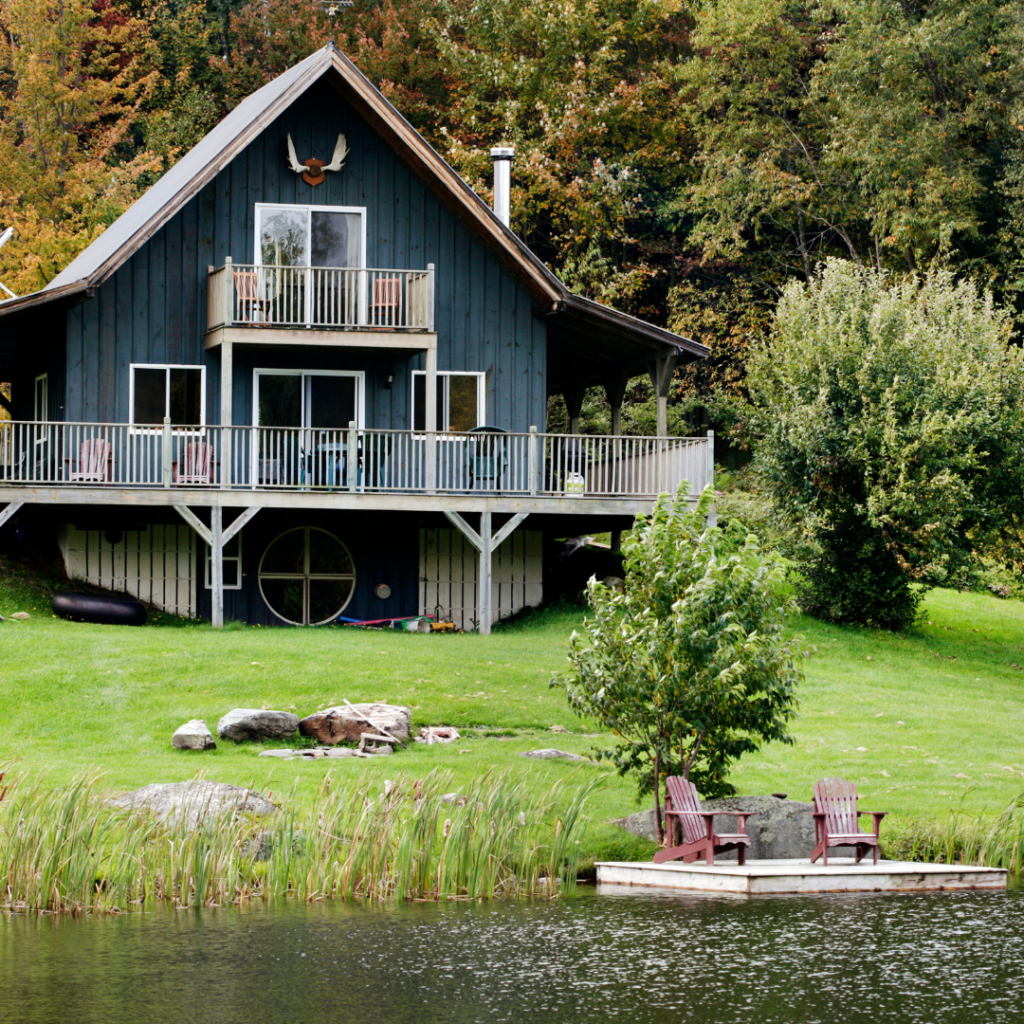
8 Things to Think About Before Running a Short-Term Rental
space
Ever stayed in an Airbnb or VRBO property and thought “I could totally do this?” You’re not alone. Short-term rentals have exploded in popularity all over the world and running one can be a great income booster, but is it right for you? We talked to Andrea Beitel, sales representative and REALTOR® with RE/MAX, to get some insights. Not only does she help her clients invest in properties, she owns an Airbnb herself in Prince Edward Island.
Here are the top questions she recommends asking before you jump into buying an investment property to run a short-term rental, or use a current second property as a short-term rental.
space
1. Can you handle a slow period or downtick in business financially?
Short-term rentals can help supplement your income, but you may not be able to count on consistent cash flow. Guests cancel, weather impacts plans, and let’s not forget what a pandemic can do to travel. If you can handle fluctuation, a short-term rental can be a great way to earn some money or offset costs.
space
2. What’s the demand for short-term rentals in the area?
Is the market seasonal? Year-round? Are guests mostly business travellers who stay during the week or families who spend weekends and holidays? “In Toronto or Vancouver, there’s year-round demand,” says Beitel. “But other places, like our house in Prince Edward Island, are strictly June through September. Every place is different, so do some research first.”
Working with a local REALTOR® who can give insights to trends and habits surrounding the area in which you’re looking to buy is always a good first step.
space
3. What are typical rates for short-term rentals in the area?
“Are the rates sufficient for you to turn a profit if that’s what you want?” says Beitel. “Or if you’re okay with breaking even or operating at a bit of a loss, can you charge enough to support that?”
Andrea and her family have specific financial goals they’re looking to meet, and they set their prices accordingly. Figuring out what you’d like to achieve with your short term rental will allow you to price your property accordingly for potential visitors. Take a look at comparable properties listed in your area, and see where you can set your prices to be competitive but still workable for you. When calculating your expenses, consider add-ons such as the cost of turning the property over between guests and extra stress on your power grid and septic system.
space

space
4. What are the rules?
Every municipality has different regulations. In Toronto, you can only rent out your principal residence for a max of 180 days a year, and 6% of your gross revenues go to the city. Some areas like Blue Mountain, ON have new by-laws that limit rentals to those that are grandfathered in or are in an area that’s specifically zoned for short-term. Checking on local regulations is one of the first things you should do: fines for non-compliance can be steep.
Also, if the unit is a condo, check if short-term leases are allowed. In many buildings, they are a hard no.
space
5. Have you factored in mortgage and insurance?
If you’re buying a property with the intention of using it as a short-term rental, the minimum down payment and interest rate may be more than on a principal residence. Insurance premiums will probably also be higher. But be honest with the bank and the insurance company. “I always recommend full disclosure on what your plans are for the property,” says Beitel. “Because while not being completely upfront might mean lower payments, that only works until something goes wrong.”
space
6. Can you handle the cost and responsibility of operating the rental?
Running a short-term rental isn’t all straight-up profit. Although some of the expenses are tax deductible, platforms like Airbnb and VRBO take a cut, as do some municipalities. Then there are utilities, property taxes, insurance, mortgage interest, marketing, cleaning, repairs, and the occasional big expense like a new appliance. If you aren’t local or aren’t interested in being hands-on, you’ll also need to factor in a dependable property management company and/or caregiver. But before taking things on yourself, Andrea cautions potential renters to be aware of the standards set by the rental platforms. “They’re very strict about cleanliness, especially since the pandemic,” she says. “I think most people would be hard-pressed to meet those standards without professional cleaners.”
Heather Bayer, co-founder of Vacation Rental Formula, pointed out that running a short-term rental or vacation property is going into business. “[You’re] joining the travel and tourism and hospitality business,” she explained. “Something I always say to my owners when we first take them on board as property management clients is, regardless of whether you’re doing it yourself or you’re using a property management company, you’ve now entered the hospitality industry and there’s huge responsibilities that come with that.”
space
7. Are you okay with sharing your home?
Renting out part of your home means less privacy, which is fine if you’re social and love meeting people, less so if you like your space to yourself. If you’re renting the whole place, keep in mind there’s some work involved: guests don’t want to see family photos and kids’ toys, so all personal belongings have to be stored away.
HGTV host and cottage rental expert Scott McGillivray recommends proper tenant checks before renting out your vacation home to someone.
“It’s nice to generate some income, but it can also be scary if you don’t get the right people,” says McGillivray. “ I see landlords who have bad experiences because they have no signed contract, didn’t take any credit card or any driver’s license information and no damage deposit. I would never rent my property to just anyone. Take the time to contact previous landlords.”
space
8. How are you with risk?
Accidents happen, some guests may not be ideal, and you need to be prepared for things to go wrong—this is where insurance can come in handy. How ready are you to deal with the added stress (and finances) if something does go wrong?
That aside, Andrea says, even with some issues, she’ prefers the short-term option over long-term tenants. “Running a short term rental has been an overwhelmingly positive experience,” she says. “We’ve met a lot of really nice families!”
Running a short-term rental has its pros and cons, but if you do your research and go in with your eyes open, it can be an enjoyable, fulfilling experience.
This article is for information purposes and is not financial or legal advice or a substitute for financial or legal counsel.
space
If you’re in the market for an income property for long or short term rentals, Forest Hill – GREY COUNTY can help.
space



